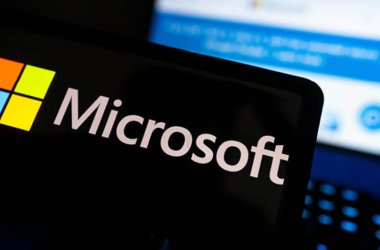 In a recent filing with the U.S. Securities and Exchange Commission, Nokia laid out the threats it faces as part of its planned deal with Microsoft.
In a recent filing with the U.S. Securities and Exchange Commission, Nokia laid out the threats it faces as part of its planned deal with Microsoft.
There are many, according to Nokia. Some have already been identified by critics of the agreement, under which Nokia will phase out use of its Symbian operating system in favor of Microsoft’s Windows Phone software. Publicly held companies routinely disclose all the possible risks of their businesses to shareholders.
The immaturity of that software, just released in phones in November, is one serious risk, Nokia said.
“The Windows Phone platform is a very recent, largely unproven addition to the market focused solely on high-end smartphones with currently very low adoption and consumer awareness relative to the Android and Apple platforms, and the proposed Microsoft partnership may not succeed in developing it into a sufficiently broad competitive smartphone platform,” Nokia wrote in the filing.
While the companies have signed a “non-binding term sheet,” they still have to negotiate the final contract, a process that might take longer than expected or might not happen at all, Nokia warned.
By choosing Windows Phone, Nokia may forgo more competitive alternatives that would let its phones reach greater and faster acceptance in the market, it said.
Also, the transition to Windows Phone might take too long to allow Nokia to compete, given the ongoing development of other platforms, Nokia said.
In the same filing, Nokia said it expects to take two years to make the transition to Windows Phone as its primary platform. During that time, it will continue to support Symbian in the hopes of transitioning the installed base of 200 million Symbian owners to Nokia Windows phones, Nokia said. It reiterated its hopes of selling an additional 150 million Symbian phones in future years.
Nokia pointed to other threats as well, such as the danger that the deal could erode its brand identity in areas such as China, where it is quite strong, and fail to enhance the brand in areas such as the U.S., where it is currently weak.
Another challenge will be building a profitable business model around a platform like Windows Phone, for which Nokia must pay royalties, Nokia said. While Symbian is a royalty-free operating system, it didn’t come without significant costs to Nokia, which spent more than US$400 million in 2008 to buy the half of the Symbian company that it didn’t already own.
In the filing, Nokia also warned about the challenges it faces internally as it implements the new plan for Windows Mobile. For example, it may not be able to change its mode of working or culture to work effectively with Microsoft, the company said. Because Nokia anticipates laying off a large number of workers, the remaining employees may lose motivation, energy and focus, thus reducing their productivity, Nokia said.
Because of all of the uncertainty resulting from the proposed deal, the company said it will not provide annual targets for 2011, although it expects its devices business to grow faster than the market.
It did not further elaborate on the precise amount of money that Microsoft will contribute to Nokia. In February, Nokia CEO Stephen Elop said that Microsoft would pay Nokia billions of dollars as part of the deal over an unspecified time.





